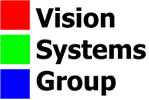Computer Vision (Incorporating Deep Learning)
The focus of this module (NFQ Level: 9, ECTS Credits: 7.5) is to produce graduates with a deeper theoretical and practical understanding of the issues that underpin computer vision.
Computer vision applications have significantly expanded over the last decade and this core skill set is always in high demand by employers. This module will build on the basic concepts with a view to delving deeper into core computer vision, machine learning and deep learning topics. As well as examining traditional computer vision concepts (ie feature extraction and machine learning) a key focus of the module will be on deep learning as applied to computer vision. We will examine the core concepts behind deep learning for computer vision with a specific focus on Convolutional Neural Networks (CNN). Students will learn how to design and tune such networks in a range of practical applications and assignments. In addition we will examine a range of deep learning architectures ranging from AlexNet upto the current state of the art in this ever expanding field. Deep learning based computer vision forms the core of many of the recent developments in this field and has been widely adopted as a core AI tool by all the key industrial players such as Google, Facebook, IBM, Apple, Baidu ... as well as a wide range of highly innovative startups. All computer vision and deep learning concepts will be reinforced by guided practical work and advanced case studies.
This module is primarily aimed at those who aim to undertake research in computer vision or require a deeper understanding of the subject to address commercial computer vision development. Computer vision applications span a wide range of disciplines including industrial/machine vision, video data processing, biomedical engineering, healthcare, astronomy, imaging science, sensor technology, multimedia and enhanced reality systems. Please refer to the modules summary syllabus for a breakdown of the course content.
This module will require basic programming skills. We will develop solutions within a Python based development environment. Specifically we will use the open source and widely adopted scikit-image and opencv for our computer vision core, scikit-learn for our machine learning core and expanding on this we will develop our deep learning solutions within the very popular Keras (a high-level python based neural networks API) Tensorflow (an open-source software library for Machine Intelligence) environment. Students will have access to a Codebook of examples and resources which supports all the taught material.
Summary course notes are provided in pdf format. Screencast videos (available were possible) of lecture material will be made available in conjunction with outline notes (when used in conjunction with relevant papers/texts/associated material referenced in class) to help guide the student through the core material in a systematic way.
Notes and all associated module material are copyright and are issued for personal use only. Reuse or redistribution of this material (partial or otherwise) is strictly prohibited. All user access is logged for analytical and verification purposes.
An introductory Level 8 module ee453: Image Processing and Analysis (PLUS) in this area. Please refer to the indicative syllabus for an outline of some of the topics covered.
Professor Paul Whelan
